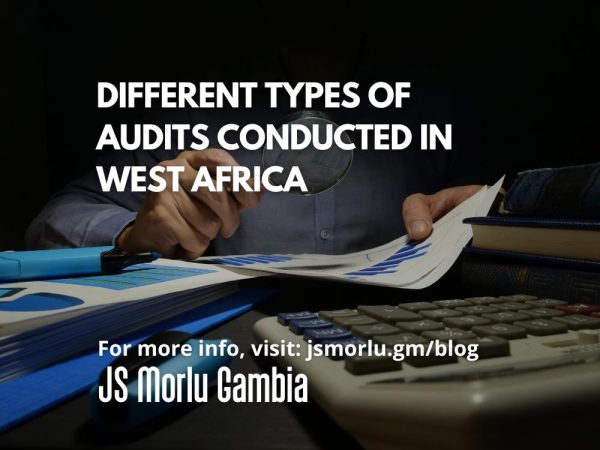Audits are a critical part of ensuring the transparency and accountability of government and financial institutions in West Africa. There are a number of different types of audits that are conducted in the region, each with its own specific purpose.
Financial audits are the most common type of audit conducted in West Africa. Financial audits are designed to ensure that financial statements are accurate and that the underlying transactions are properly recorded. Financial audits are typically conducted by external auditors, who are independent of the organization being audited.
Compliance audits are conducted to ensure that an organization is complying with applicable laws and regulations. Compliance audits can be conducted by internal auditors, external auditors, or government agencies.
Operational audits are conducted to assess the efficiency and effectiveness of an organization’s operations. Operational audits can identify areas where an organization can improve its operations and save money.
Systems audits are conducted to assess the adequacy and effectiveness of an organization’s internal controls. Systems audits can identify areas where an organization is vulnerable to fraud or other financial irregularities.
In addition to these four main types of audits, there are a number of other specialized audits that can be conducted in West Africa. These include environmental audits, information technology audits, and forensic audits.
The type of audit that is conducted will depend on the specific needs of the organization or government agency. For example, a financial audit may be conducted to ensure that an organization’s financial statements are accurate, while a compliance audit may be conducted to ensure that an organization is complying with applicable laws and regulations.
Audits play an important role in ensuring the transparency and accountability of government and financial institutions in West Africa. By conducting audits, auditors can help to identify and prevent fraud and other financial irregularities. They can also help to improve the efficiency and effectiveness of an organization’s operations.
Challenges Facing Auditors in West Africa
Auditors in West Africa face a number of challenges, including:
- Corruption: Corruption is a major problem in many countries in West Africa. This can make it difficult for auditors to obtain accurate information and to conduct effective audits.
- Lack of resources: Many countries in West Africa lack the resources to provide adequate funding for auditing. This can make it difficult for auditors to hire qualified staff and to purchase the necessary equipment.
- Political interference: In some countries in West Africa, political interference can make it difficult for auditors to conduct independent audits.
Despite these challenges, auditors in West Africa play an important role in ensuring the transparency and accountability of government and financial institutions. By working to overcome these challenges, auditors can help to improve the quality of life for the people of West Africa.
Recommendations for Improving the Audit Environment in West Africa
There are a number of recommendations that can be made to improve the audit environment in West Africa. These include:
- Increased funding: Governments in West Africa should increase funding for auditing. This would allow auditors to hire qualified staff and to purchase the necessary equipment.
- Increased independence: Auditors should be given greater independence from political interference. This would allow them to conduct independent audits without fear of reprisal.
- Increased cooperation with law enforcement: Auditors should cooperate more closely with law enforcement agencies. This would help to ensure that those who commit fraud and other financial irregularities are brought to justice.
- Increased awareness of the importance of audits: The public should be made more aware of the importance of audits. This would help to create a demand for high-quality audits and would make it more difficult for those who would seek to abuse the audit process.
By implementing these recommendations, governments in West Africa can help to improve the audit environment and make it more difficult for those who would seek to commit fraud and other financial irregularities. This would help to protect the public interest and ensure the transparency and accountability of government and financial institutions in West Africa.
